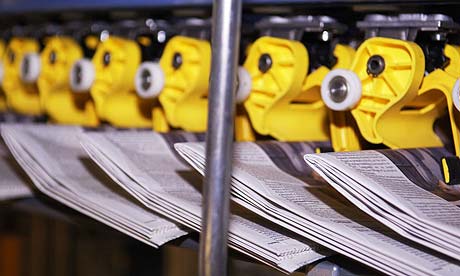Irish newspapers created quite a stir when they demanded a
fee for incoming links to their content. Controversy
erupted on 30 December, when an attorney from the Irish law firm McGarr
solicitors exposed the case of one of its clients. Women's Aid organisation,
being asked to pay a fee to Irish newspapers for each link they send to them.the
twitter sphere, the blogosphere and, by and large, every self-proclaimed cyber
moral authority, reacted in anger to Irish newspapers' demands that go against
common sense as well as against the most basic business judgment.
But on closer examination, the position of the
Irish dead tree media is just the tip of the iceberg for an industry facing issues
that go well beyond its reluctance to embrace the culture of web links.As
for the Irish newspapers, despite their dumb rate card for links, they claimed
to be open to "arrangements" Having
said that, such posturing reflects a key fact: traditional media, newspapers or
broadcast media, send contradictory messages when it comes to links, which are
simply not part of their original culture.
This shows how traditional
media institutions are trying to rein in on money making through online news,
despite the fact it may be seen as too harsh. This is probably due to the fact
that they foresee the decline of newspapers inevitable and need to continue a
means of gaining revenue.
http://www.guardian.co.uk/technology/2013/jan/07/irish-newspapers-control-online-content
http://www.guardian.co.uk/technology/2013/jan/07/irish-newspapers-control-online-content

No comments:
Post a Comment